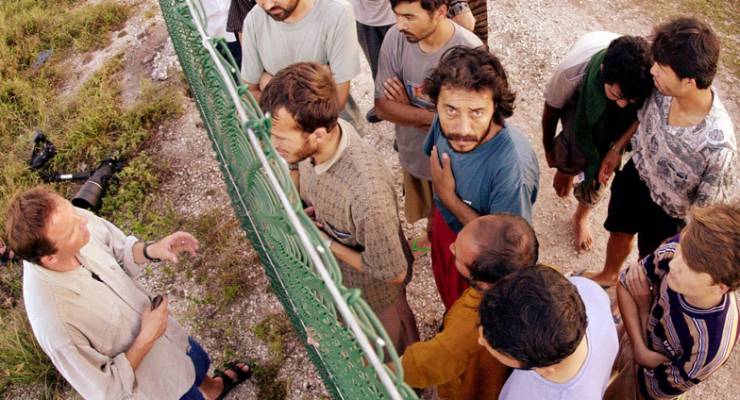
Just days after Afghanistan suffered its deadliest day for journalists since the Taliban fell — and the world’s deadliest since the Charlie Hebdo massacre in 2015 — the United Nations is today marking World Press Freedom Day. The date usually prompts breakfasts, reports and awards, but we thought we’d take a more analytical look around our region to see how we fare when it comes to press freedom.
According to Reporters Without Borders (RSF), which releases a report into press freedom each year, Asia Pacific is home to the world’s deadliest countries for journalists and bloggers, nations with huge numbers of incarcerated journalists, and the worst dictatorships and information “black holes”.
Australia
At home, Australia ranks 19 on the Reporters Without Borders (RSF) press freedom scale. Its ranking is the same as last year, and the report notes our highly concentrated media, restrictions on our reporters trying to cover asylum seekers on Manus and Nauru, and the Turnbull government’s proposed security laws this year that could have seen journalists and whisteblowers jailed.
New Zealand
Our neighbours across the ditch jumped five full places in RSF’s ranking to number eight since last year, when its two biggest media companies NZME and Fairfax (which now calls itself Stuff) were trying to merge. That bid was rejected by the competition regulator last year, and appeals have failed. New Zealand is the highest-ranked country in the region, but RSF say there are still concerns about the Official Information Act and how long information requests take to process. New PM Jacinda Ardern is reportedly planning to strengthen whistleblower protections, but her deputy Winston Peters only dropped legal action in February against two journalists under heavy criticism.
Philippines
The Philippines is Asia’s deadliest country for journalists, with four killed in 2017, according to RSF. It dropped six places to 133, as President Rodrigo Duterte and his administration are frequent critics of the press. Last year he called journalists spies, has said they are not “exempted from assassination” and has tried to close independent news site Rappler.
Malaysia
A Danish man was this week the first person to be convicted under Malaysia’s new “fake news” laws — legislation that Singapore is also considering. The new law has concerned media rights activists, who worry it is an attempt by the government to stifle debate with jail terms of up to six years and fines up to $130,000 for creating or spreading “fake news”. Malaysia now ranks one position worse than last year at 145.
Myanmar
In Myanmar, two Reuters journalists have been imprisoned since December, arrested while investigating the killing of Rohingya Muslim men and boys in a Rakhine state village. It ranks at 137 — six places down from last year.
China
In February, the International Federation of Journalists marked 10 years of decline in China’s press freedom. In the report, the IFJ said: “There is no doubt that China under Xi Jinping is only increasing its efforts to block the right to information and suppress freedom of speech.” China ranked 176 on the RSF scale — the same as last year, and only above North Korea, Eritrea, Turkmenistan and Syria.
India
India dropped two places on the RSF rankings to 138. The RSF says self-censorship is growing in mainstream media. Three journalists were murdered in 2017, and another three in March this year. The RSF says foreign reporters are barred from sensitive parts of the region, and earlier this year the ABC’s Phillip Adams and his Late Night Live team had to cancel a trip to India when their visas weren’t granted.
North Korea
At the bottom of the world press freedom rankings at 180, North Korea is the “world’s worst violator of the freedom to inform” — the state news agency is the only source of news and viewing news or content from an outside media outlet can be punished with time in a concentration camp.








Crikey is committed to hosting lively discussions. Help us keep the conversation useful, interesting and welcoming. We aim to publish comments quickly in the interest of promoting robust conversation, but we’re a small team and we deploy filters to protect against legal risk. Occasionally your comment may be held up while we review, but we’re working as fast as we can to keep the conversation rolling.
The Crikey comment section is members-only content. Please subscribe to leave a comment.
The Crikey comment section is members-only content. Please login to leave a comment.